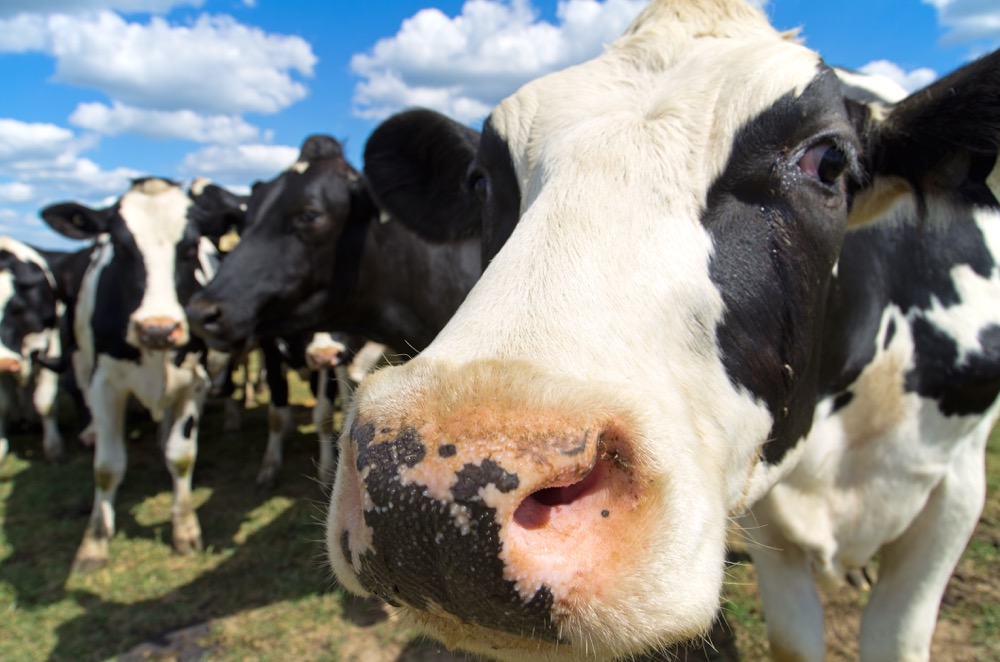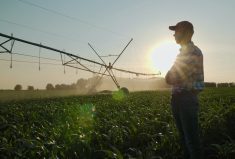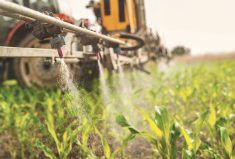“When we go to Mars, we will have to grow our own food.”
Canadian physician, engineer and former astronaut Robert Thirsk made that comment when asked a question on the preservation of seed at the Canadian Beef Industry Virtual Conference in late August. Since a space vessel cannot carry enough food to fly to, and then conduct research, on Mars, growing food on that planet will be essential, he noted.
Thirsk has spent more time in space than any Canadian (six months aboard the International Space Station in 2009), and he speaks with great respect for our deeply interconnected planet and with awe-inspiring clarity about the future. A future that includes the production of food in space.
Read Also

Deep cuts to ag research jeopardize Canada’s farming future
The huge cuts to ag research at Agriculture Canada are being widely panned by farm organizations, but there seems to be little hope of the government reversing its decision.
Seed research in space is already underway and was part of Thirsk’s last mission. What caught my attention in terms of agriculture was the potential.
What if we could store or grow food in space? Would we have an option of a seed bank in space, mirroring the current bunker here on Earth? What other research could we do as Canadians to be the centre of food production for the world?
- More with Brenda Schoepp: Report shines a light on the threat of chronic wasting disease
Reading this may seem ‘way out there,’ but so was talk of drones not that long ago. Cans sealed with lead were once the norm and now we can flash freeze vegetables to preserve their full nutrient value. Farmers can grow food in any medium with artificial light as long as there is water. Meat is being recreated from cell culture.
Food and farming change quickly.
There have been several experiments conducted in space for the forestry industry and the seed experiment is still in play. Seeing the interconnection of the world — that Thirsk claims one can fully appreciate from the lofty level of space — gives credence to closing the gap between the sky and the Earth.
Let’s start with what we know and what astronauts eat.
We know that the future of food consumption for all will depend largely on its availability and storability. While 87 per cent of the world has access to electricity, only 25 per cent of the population enjoys refrigeration. So the future of food may be in those meal packages that astronauts eat which require no form of refrigeration and can last for years. If we want to address hunger and food waste, the processing industry needs to look up — way up — to the future.
We also know that our seed is in the hands of a few, and protecting diversity in farmed and wild plants is going to be critical moving ahead. If seed can be stored or reared in space (or on another planet) then we have options moving forward.
How does processing new foods for long-term travel and storage or researching seed life in space apply to the farm?
The connection is in the farm and industry groups that are looking to advance their commodity. Has your vegetable, fruit, grain, pulse, meat or fish sector talked about processing for long-term storage? Has there been a discussion on long-term risk mitigation if seed fails or is withheld? Is the research in your industry reflective of the future such as growing nutrient-dense plants with a vitamin profile? If not, consider the benefits.
Taking the pressure off of electrical grids for refrigeration has a distinct environmental impact. Selling wares that do not spoil and are easily stored and transported to remote areas and developing countries has a humanitarian advantage. Creating food with higher, more dense nutrient value reduces waste and provides a more rounded meal.
Food processing is the largest manufacturing industry employer in Canada and a significant contributor to our GDP. Growing this industry is good for all Canadians. And ensuring plant diversity by protecting the base that the world has already been given will be ever more important as farmers strive to feed the world’s growing population.
A storable meal requires the participation of a multitude of researchers, farmers, nutritionists and processors. The future may lead us to cross-sector participation in a way that has not been experienced before. Every commodity has the opportunity to be on the plate. (Interestingly, as I was researching this column, a request popped up on my screen from a food buyer in another country looking for complete, storable meals.)
As a farmer or value-add company, these things might seem a world away today. But technology creates a platform to make the wildest dreams possible.
We have yet to discover what food will grow (and if humans and animals can survive) on Mars. However, there is an opportunity and an ongoing challenge to be part of greater exploration in food and farming that meets the immediate and future demand for nutrient-dense, storable meals that would benefit us here on Earth.
















